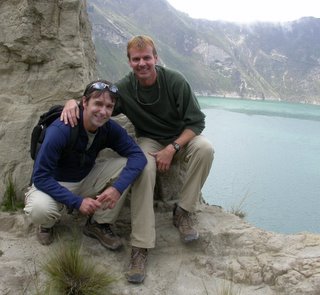"Why They Hate Us"
Highlights from JULIA E. SWEIG, a senior fellow at the Council on Foreign Relations
• Cold War legacy: U.S. intervention in Vietnam, and covert attempts to overthrow governments in Iran, Guatemala and Cuba, among others, created profound distrust of U.S. motives throughout the developing world. Europeans also disdain these policies and bemoan the cultural coarseness of Americanization sweeping their continent.
Americans, by contrast, tend to dismiss this side of the Cold War. Gore Vidal famously referred to this country as the United States of Amnesia. We're all about moving forward, getting over it, a nation of immigrants for whom leaving the past behind was a geographic, psychological and often political act. As the last guy standing when the Cold War ended, in 1989, we expected the world to embrace free markets and liberal democracy.
• Power and powerlessness: Power generates resentment. But the United States has lost the ability to see its power from the perspective of those with less of it. In Latin America, for example, U.S. policies — whether on trade, aid, democracy, drugs or immigration — presumed that Latin Americans would automatically see U.S. interests as their own. And when denied deference, we sometimes lash out, as did Defense Secretary Donald H. Rumsfeld when he lumped Germany, a close U.S. ally, with Cuba and Libya because Berlin opposed the Iraq war.
• Globalization: In the 1990s, our government, private sector and opinion makers sold globalization as virtually synonymous with Americanization. President Clinton promised that open markets, open societies and smaller government would be the bridge to the 21st century. So where globalization hasn't delivered, the U.S. is blamed.
• What we stand for: Bush is wrong to say that foreigners hate us because of our values and freedoms. Quite the contrary. U.S. credibility abroad used to be reinforced by the perception that our laws and government programs gave most Americans a fair chance to participate in a middle-class meritocracy. But the appeal of the U.S. model overseas is eroding as the gap between rich and poor widens, public education deteriorates, healthcare costs soar and pensions disappear. Most recently, the U.S. government's seeming indifference to its most vulnerable citizens in the aftermath of Hurricane Katrina further undercut belief in the American social contract. The immigration debates also have fostered the perception that the U.S. is vulnerable, hostile and fearful.


<< Home